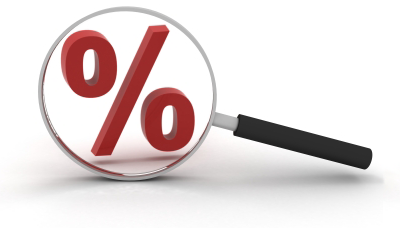The best way to learn about mortgages is by talking to an experienced mortgage broker and getting pre-approved before you go house hunting. With a little knowledge and preparation, you will be far more likely to have your pick of the lowest mortgage rates.
What is the Prime Rate?
The Prime interest rate is the rate that commercial banks charge their most credit-worthy customers, which are typically large corporations or other banks. In fact, these customers are often able to borrow at rates below prime. The Canadian prime rate rises and falls along with the economy and is heavily influenced by the overnight rate set by the Bank of Canada.
Influencers of Prime Rate
Canadian monetary policy has a long-term goal to avoid inflation and also, depending on conditions, short-term goals like reducing unemployment. Eight times a year the Bank of Canada sets the overnight rate in response to trends it sees exerting economic pressures on the market. In the past, the prime rate has been about 2 per cent more than the overnight rate. When the Bank of Canada adjusts its prime rate, the five major Canadian banks usually do the same. There isn’t always an immediate response, and historically there have been times when Prime has varied from bank to bank.
How does the Prime Rate affect mortgage rates?
Variable rate mortgage loans track the prime lending rate and include an adjustment amount that is added or subtracted from the Prime Rate. In times when Prime is high, lenders will offer variable rate mortgages with a greater discount off of Prime. When rates are lower and the profit margins reduced this adjustment value goes down leading to less discounts, or even premiums, on Prime.
How to ensure you qualify for the best variable rate?
To be eligible for the lowest variable mortgage rates you need to do everything you can to be less of a risk to the lender. With an improving economy and low inflation, today’s rates are nearly as low as they have ever been. Why wouldn’t you want to get the best rate you could? With a little planning ahead, you can improve your credit score and become a more desirable applicant.
To qualify for a variable rate, you must be able to qualify at the Bank of Canada Benchmark rate (currently 4.79%). This means it is even more important to talk to a mortgage broker prior to looking for a new home, to make sure you know what the maximum purchase price is that you can afford and still enjoy the flexibility that comes from choosing any type of mortgage (i.e. open or closed, fixed or variable) and any term (i.e. 1-10 years).
With a little research and planning you can take advantage of today’s prime rate. Because brokers aren’t tied to any single lender’s products, they are able to select a home loan for you from among the best low mortgage rates and still meets your specific financial needs.



Leave A Comment